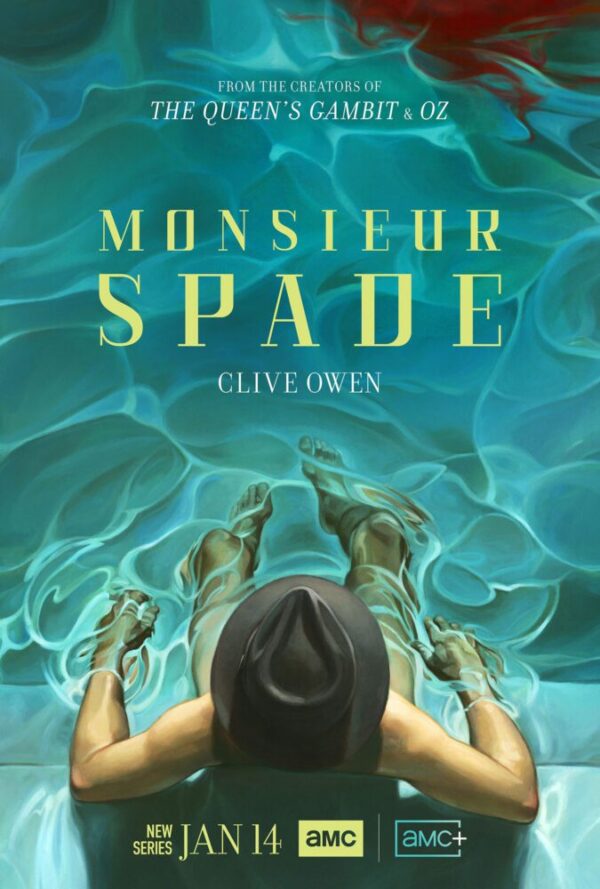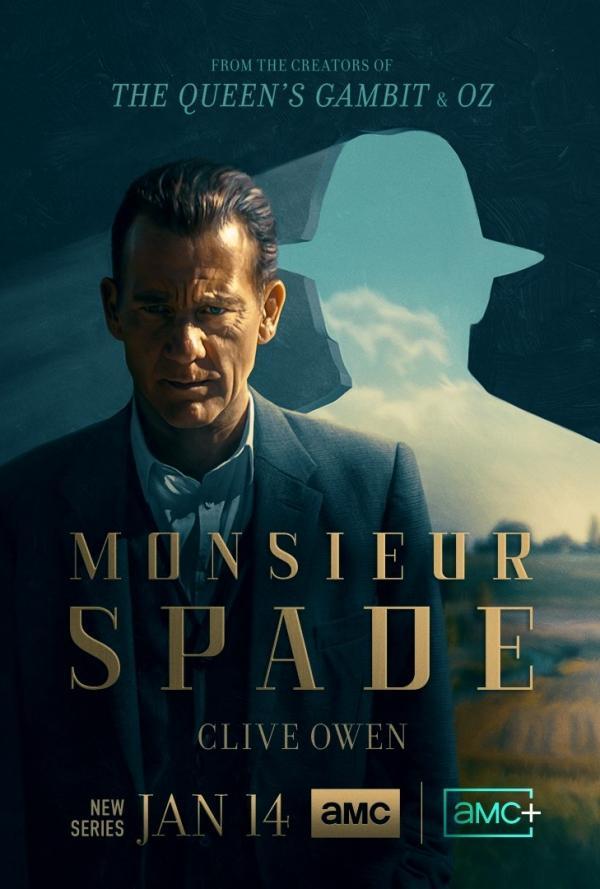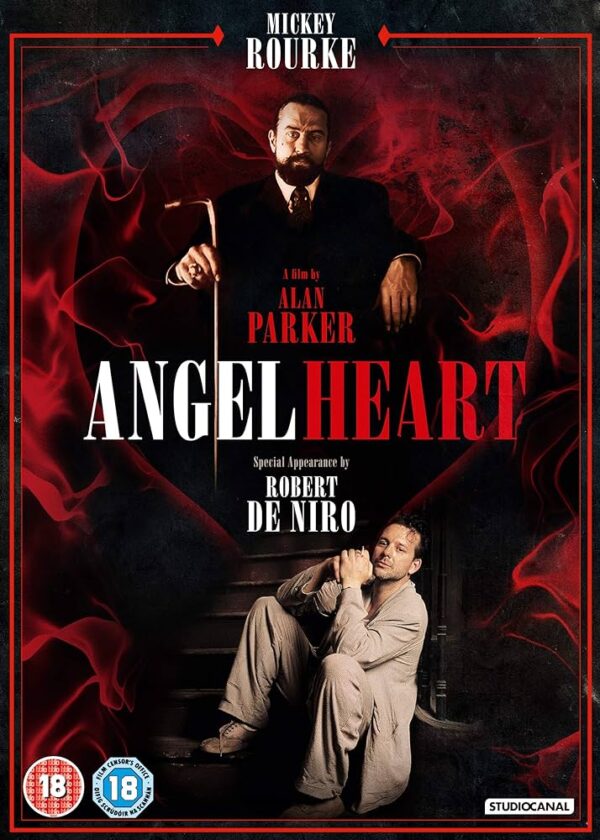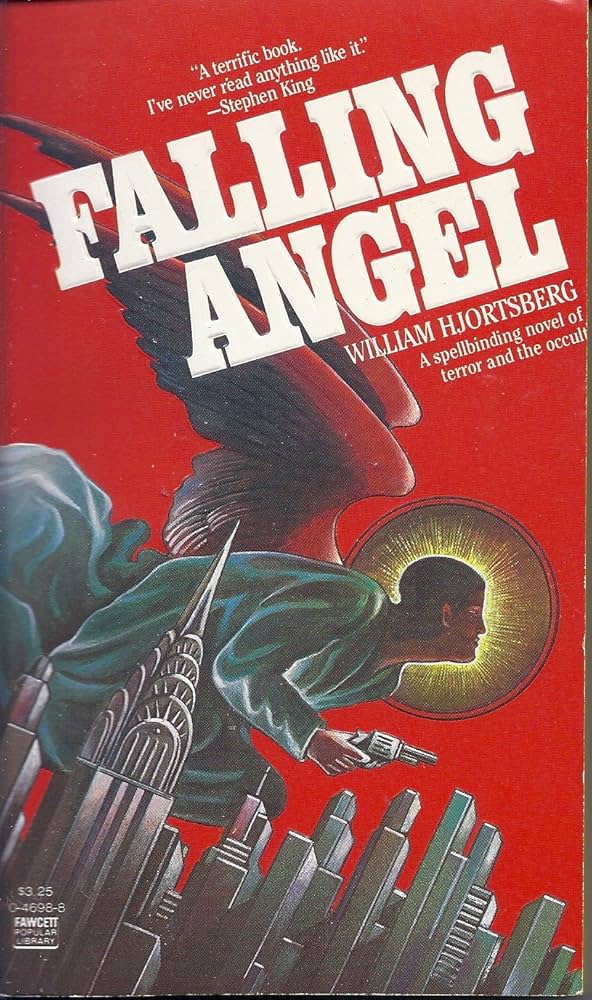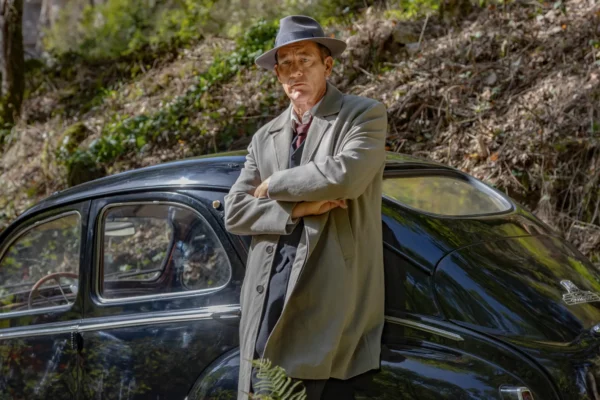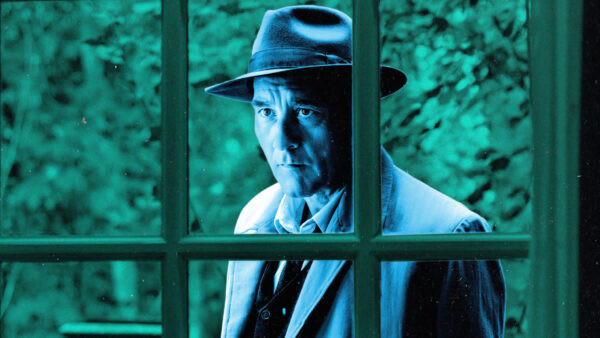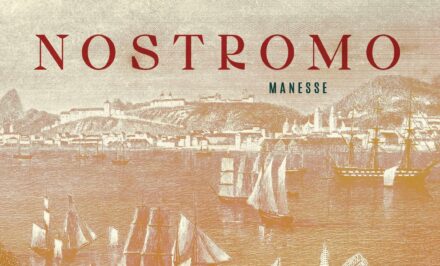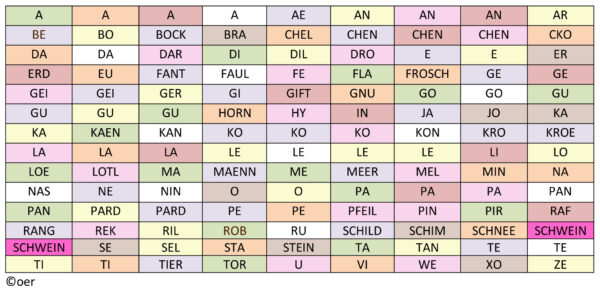‘Monsieur Spade’ and the Faustian Bargain
I’ve been reading Ed Simon’s “Devil’s Contract,” about the history of the Faustian bargain, while watching AMC’s six-episode mini-series “Monsieur Spade,” which transplants Dashiell Hammett’s Sam Spade to the South of France in the 1960s, and that combination has sparked a peculiar line of thought: the fictional private detective is a Faustian figure.
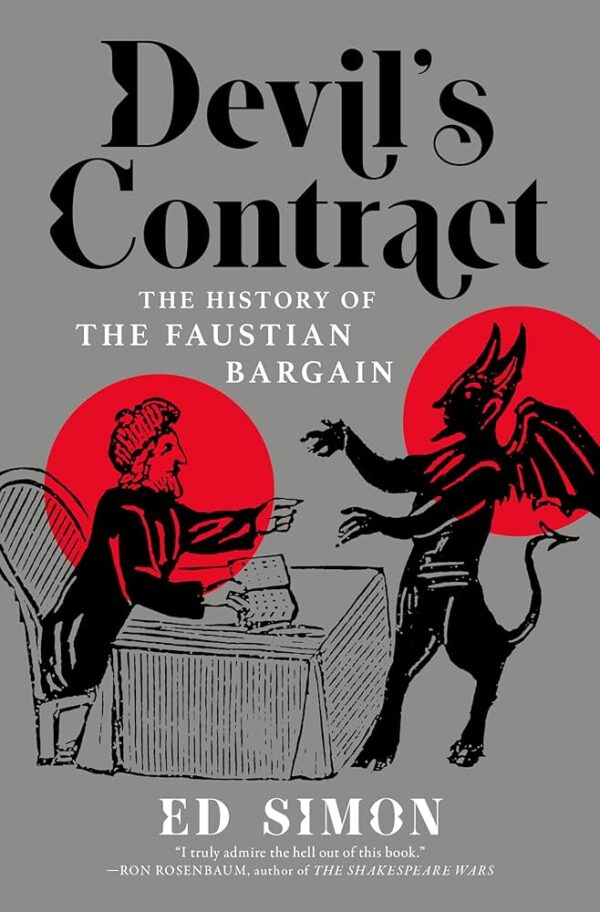
Seen from that angle, the detective is something of an emissary, coming to collect on the devil’s behalf. Maybe you killed someone for a fortune, and even got away with it for a few decades; now someone’s at your door with his fedora and notebook and hip flask, the cigarette in his mouth cocked at an insouciant angle, and he’s ready to send you to ride Old Sparky—unless you prefer one last shootout, of course. Perhaps Hammett considered this subtext when he described Spade in “The Maltese Falcon” as an almost devilish figure, his brow and nostrils angled into sharp v’s like a cartoon Satan.
The retired Spade in the AMC series doesn’t resemble his novelistic counterpart at all. Instead, we have Clive Owen’s squarish visage, paired with exhausted eyes and a deliberate gait. Everyone else in rural France seems to have made their own Faustian bargains with capitalism or politics, but he appears content to lounge in the pool on his dead wife’s estate, contemplating his life’s choices while draining bottles of wine and smoking endless cigarettes. He is, to quote yet another fictional detective in a much faster town, committed to doing as little as possible.
Indeed, the series moves at a stately pace that would have driven Hammett mad—his books were short and speedy (“Red Harvest,” for instance, manages to squeeze a multi-front gang war and dozens of killings into its relatively compact length). If anything, the slow burn reminded me of Raymond Chandler, who devoted plenty of paragraphs to the detective’s existential despond: recall his most famous character, Philip Marlowe, studying chess boards and corpses at length for signs of anything deeper.
Owen has made a notable career of underplaying his characters; his Spade has a spiritual connection with his character in “Croupier,” whose unblinking stare and low monotone belie an inner tension about to crack. It’s the opposite of Bogart’s terrier-like performance in “The Maltese Falcon,” all wry grins and snappy one-liners, and it fits the material—this is an aged and exhausted man. Your own mileage may vary.
Ed Simon’s book, meanwhile, details how the Faustian bargain has remained a compelling tale throughout history because it echoes the compromises we all make. That’s if you cast aside the spiritual angle—but even in detective fiction, the spirits can be very real, as in “Falling Angel,” the novel by William Hjortsberg later adapted into the (far superior) movie “Angel Heart” with Mickey Rourke and Robert De Niro. At the risk of spoiling a 50-year-old novel and 37-year-old movie, the story centers on a literal bargain with Satan—although who sold his soul, and for what, remains a question until the very end. Sometimes the devil really did make you do it.
** **
Nick Kolakowski is the author of „Maxine Unleashes Doomsday“ and „Boise Longpig Hunting Club“ as well as the Love & Bullets trilogy of novellas. His noir fiction has appeared in Tough, ThugLit, Mystery Tribune, Plots With Guns, and various anthologies. His „Payback is Forever“ (Shotgun Honey 2022) is inspired clearly by the novels of Richard Stark. Our review here (in German). – See also his Hell of a Mess. A Love & Bullets Hookup.

Nick Kolakowski, geboren 1980, aufgewachsen in Washington. D.C., hat Geschichte in Chicago studiert. Er schreibt Romane, Kurzgeschichten, Lyrik und Essays, viele davon über Crime Fiction und verwandte Themen. Seine Texte erscheinen u. a. in der Washington Post, in Shotgun Honey, North American Review, The Evergreen Review, Rust & Months. Kolakowski lebt in New York City. Eine Besprechung des von Parker inspirierten „Payback is Forever“ in unseren Bloody Chops.
Bei Suhrkamp auf Deutsch: Love & Bullets.
His essays with us.
His website nickkolakowski.com
His column „Smoking Gun“ with us:
John Woo is Remaking ‘The Killer.’ But Why?
The Newest ‘Ripley’ Series is Stunning and Flawed
‘Sugar’: Not the Neo-Noir Revival We Need
Moral Redemption in Noir: Is It Possible?
What Makes Jack Reacher Tick?
‘True Detective: Night Country’ Tries to Make the Familiar into Something New
Is David Fincher’s ‘The Killer’ a Comedy?
Rewatching ‘Drive’: Gosling as Noir’s Apex Predator
Elmore Leonard – City Primeval
Cormac McCarthy Used Crime Fiction’s Tropes to Make Masterpieces
Parker: Donald Westlake’s One Amazing Trick
Cosby, Winslow, Pruitt: Three Heavy-Hitting Thillers for Summer
Weed-Based Crime Thrillers are Going Up in Smoke
‘The Last of Us’: Crime in the Post-Apocalypse
What Made “Glass Onion” and “Knives Out” So Popular?
Jordan Harper’s One-Two Punch of Crime Fiction Deserves a Wide Audience
‘True Detective’ Season 2: Was It Better Than We All Thought?
From ‘Touch of Evil’ to ‘True Detective,’ Long Shots are Crime Films’ Secret Weapon
Michael Mann, again: What Michael Mann Teaches Us About Enduring Crime Fiction
„Heat 2“ – How Do You Craft a Sequel to a Masterpiece?
4 Ways Tarantino’s “Once Upon a Time in Hollywood” Novel Stands Out From the Film.
On „Heat“: Manhunter Takes Down Thief: How Michael Mann’s Early Career Led to ‘Heat’
The Most Honest Nihilism – on „The Way of the Gun“
No, Time to Die – The latest James Bond movie digs into the fatalism at the iconic spy’s core.
Cormac McCarthy’s Overlooked Masterpiece? – „The Councelor“
„Nightmare Alley“ – How Guillermo del Toro’s Film Alters a Masterpiece Noir Novel
David Cronenberg – The Carnal Crime of “A History of Violence” and “Eastern Promises”
With Parker, Donald E. Westlake Pulled Off Crime Fiction’s Most Spectacular Magic Trick
Guy Ritchie’s Return to Crime Films is Worth Watching

